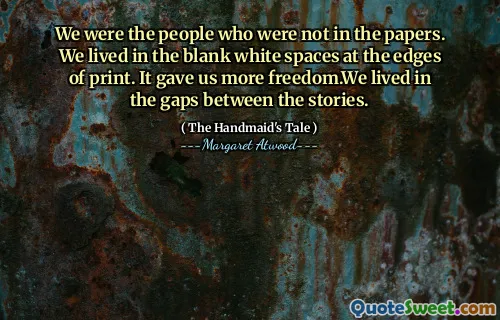One detaches oneself. One describes.
In "The Handmaid's Tale" by Margaret Atwood, the notion of detachment emerges as a fundamental theme. The protagonist navigates a dystopian society that forces her to separate her identity and emotions from her reality. This distance allows her to cope with the harrowing conditions imposed upon her, where personal autonomy is stripped away and individuality is suppressed. Through this detachment, she gains a perspective to articulate her experiences, illustrating how individuals can endure trauma by distancing themselves from their situation.
Atwood's narrative emphasizes that to survive in a repressive environment, one must learn to observe and describe rather than directly engage with painful realities. This act of description becomes a means of reclaiming power and asserting existence. By expressing her thoughts and observations, the protagonist not only preserves her sense of self but also communicates her story, allowing readers to witness the complexities of her resistance against an oppressive regime. Ultimately, this reflects the broader struggle for identity and voice in the face of dehumanization.






